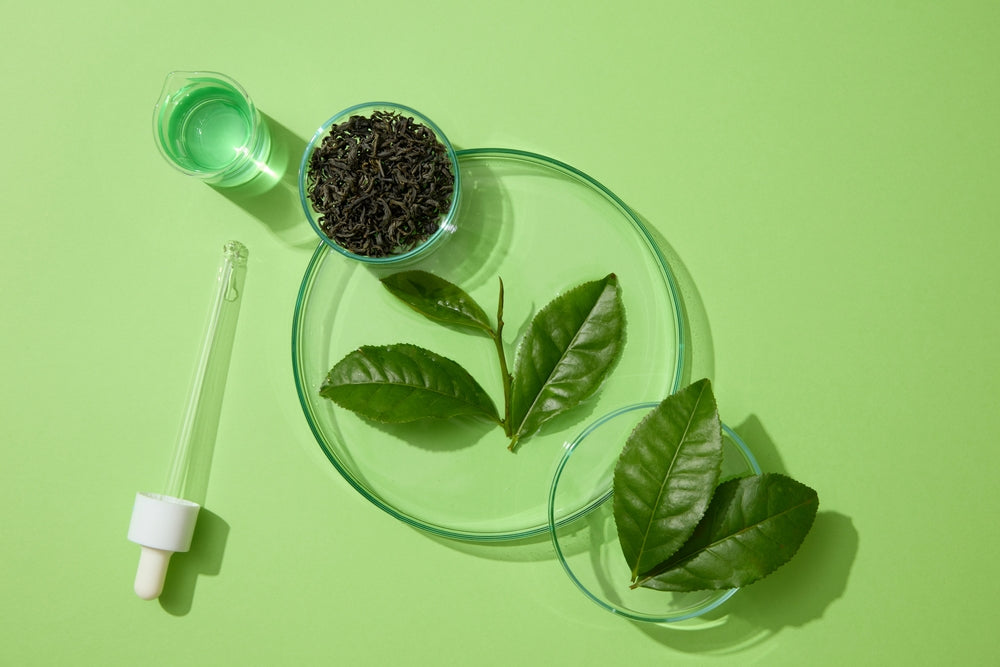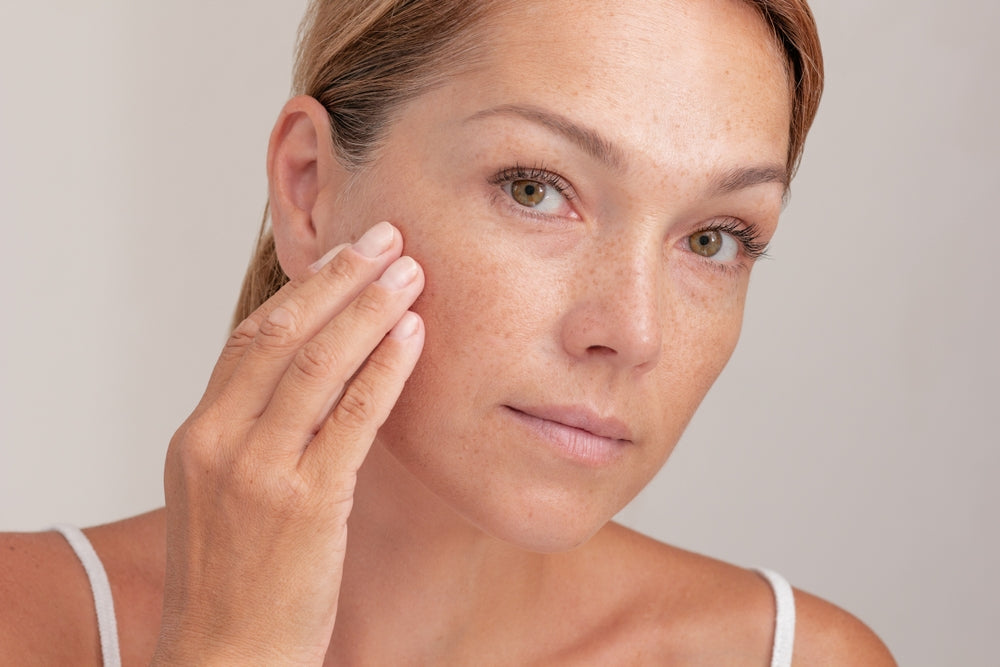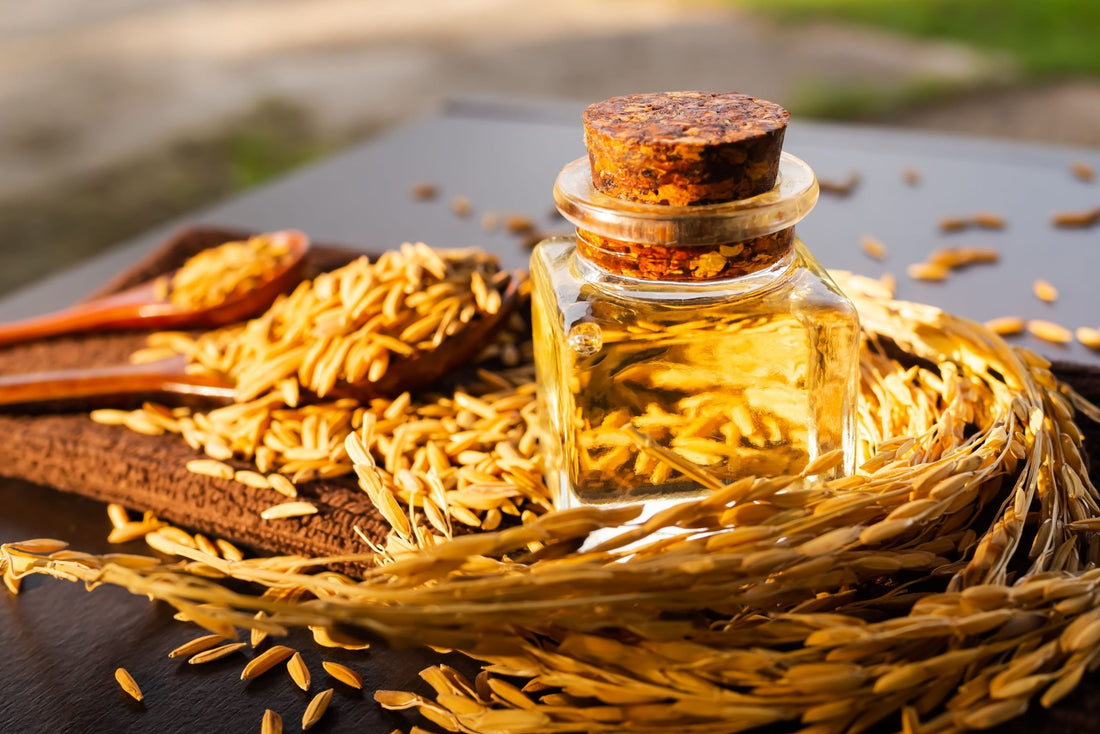Remember when your skin was smooth, clear, and perfect? Neither do I. Whether you’re in your teens, 20s, or your perimenopausal years, one thing is for certain: hormones play a role in your skin’s clarity. Multiple things can trigger acne, including hormone-related increases in oil production. According to the Journal of the American Medical Association, acne is a “nearly universal skin disease afflicting 79% to 95% of the adolescent population.” And even if you escaped high school with relatively blemish-free skin, hormonal shifts related to child-bearing and menopause can lead to adult-onset acne.
Getting to the root cause of your breakouts can take some detective work since no two people are the same. The following tips will help you reduce your breakouts, though, and you may discover that one simple lifestyle change is all it takes to give your skin a fresh start.
#1 Cleanse As Needed with the Right Product
Many of us have been taught that cleansing twice daily is a necessity. Nothing could be further from the truth. Depending on your skin type, you may only need to wash your face once a day, usually in the evening. Removing perspiration, excess oil, dirt, makeup, and sunscreen nightly gives your skin a chance to rejuvenate while you sleep. In the morning, you may not need to cleanse at all or may find a quick swipe of micellar water is all you need. Remember, you do you.
#2 Avoid Overexfoliating and Abrasive Cleansers
If you’ve tried the scorched earth approach to treating your acne, you’ve probably learned that stripping your skin of its essential oils only makes things worse. Abrasive facial scrubs can further irritate troubled skin, and astringent toners can leave you with a new problem: oily, dehydrated skin. Keeping your skin clean and your pores clear can be handled with a pH-balanced cleanser that contains salicylic acid along with soothing ingredients, like aloe, perfect for individuals concerned with inflammation and redness.
#3 Add a Chemical Exfoliant to Your Routine
Harsh scrubs can further aggravate your skin. To keep your pores looking clear, consider adding a chemical exfoliating product to your routine. Alpha hydroxy acids (AHAs) remove surface debris and improve skin texture, and beta hydroxy acids (BHAs) dissolve the gunk imbedded in your pores. Use these on alternating evenings after cleansing and before applying moisturizer.
#4 Purify that Pillowcase
Lifestyle habits, like forgetting to change your sheets and pillowcases, can ultimately lead to acne. Consider the amount of time your skin is in contact with your pillowcase. If you spend 6-8 hours per night with your face on the pillow, you’re going to be trapping heat and skincare products on your skin. Add in a restless night’s sleep and a lot of tossing and turning, and you’ll also have a fair amount of dead skin cells there, too. Get in the habit of flipping your pillow nightly and washing your sheets on a weekly basis to eliminate baked in body oils, moisturizer, and pore-clogging sweat.
#5 Embrace the No-Touch, No-Transfer Mentality
The COVID-19 pandemic has taught us a lot about hygiene and sanitary practices, but one rule will always remain: avoid touching your face, no matter where you are. From shopping carts to door handles to automated checkout machines in your favorite retail outlet, germs are everywhere. Anything that you touch can potentially be transferred to your face and trigger an acne breakout.
#6 Give Your Cellphone Some Serious Side-Eying
Using the hands-free option on your cell phone is more than just convenient. It prevents you from transferring germs from your hands to your phone to your face. Don’t think your phone is causing your breakouts? Just look in the mirror and see if those blemishes line up with areas that your phone screen touches when you’re chatting with your bestie. If you’re not already in the habit of using sanitizing wipes or a microfiber cloth to keep the screen clean, start now.
And don’t fall for the old myth about sun exposure or tanning beds curing acne. If you overdo it, your existing blemishes may turn into post-inflammatory hyperpigmentation (PIH), and a burn can further clog pores with dead skin cells. Plus, a tan is, in fact, sun damage, and no one should put themselves at risk for premature aging or skin cancer.





